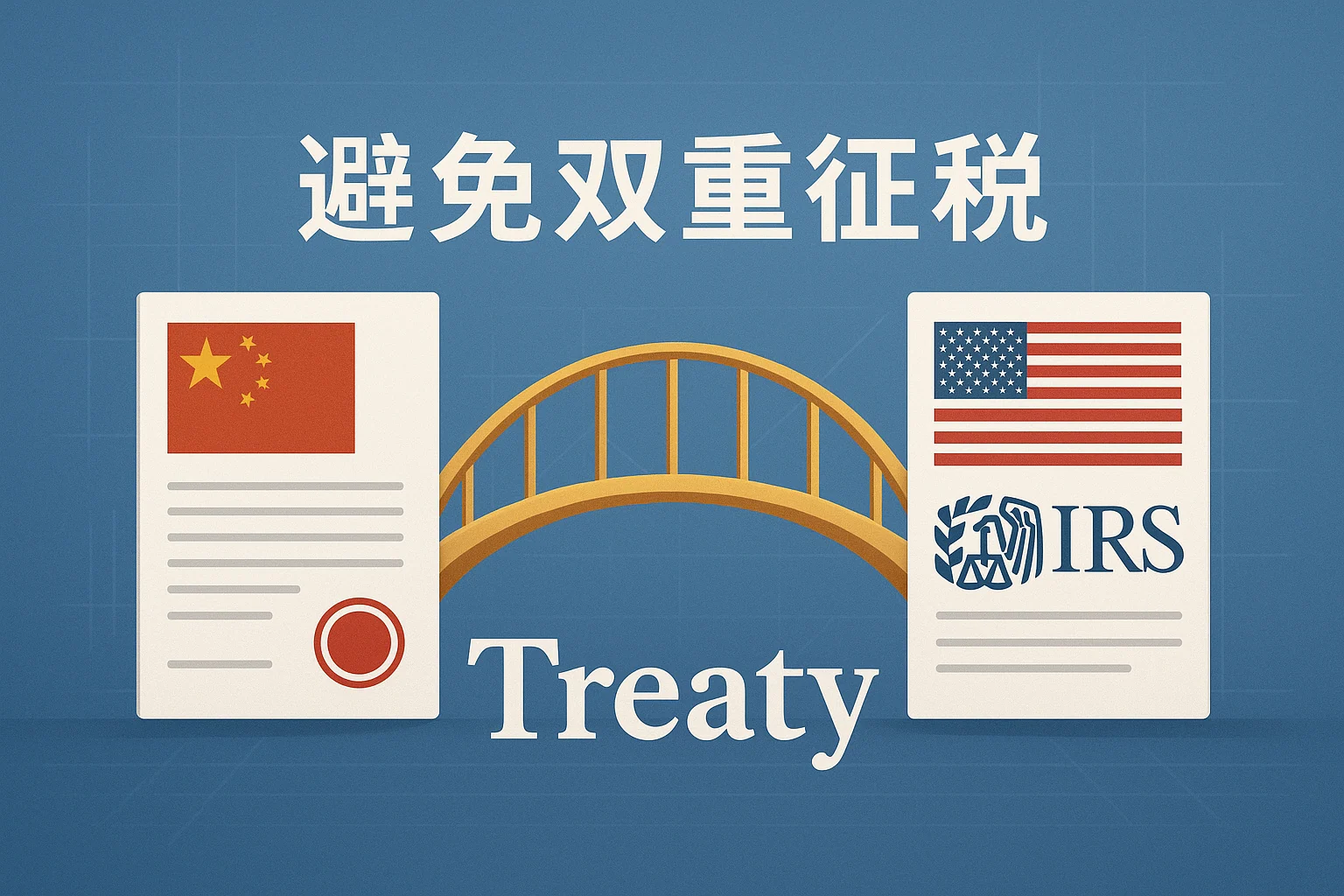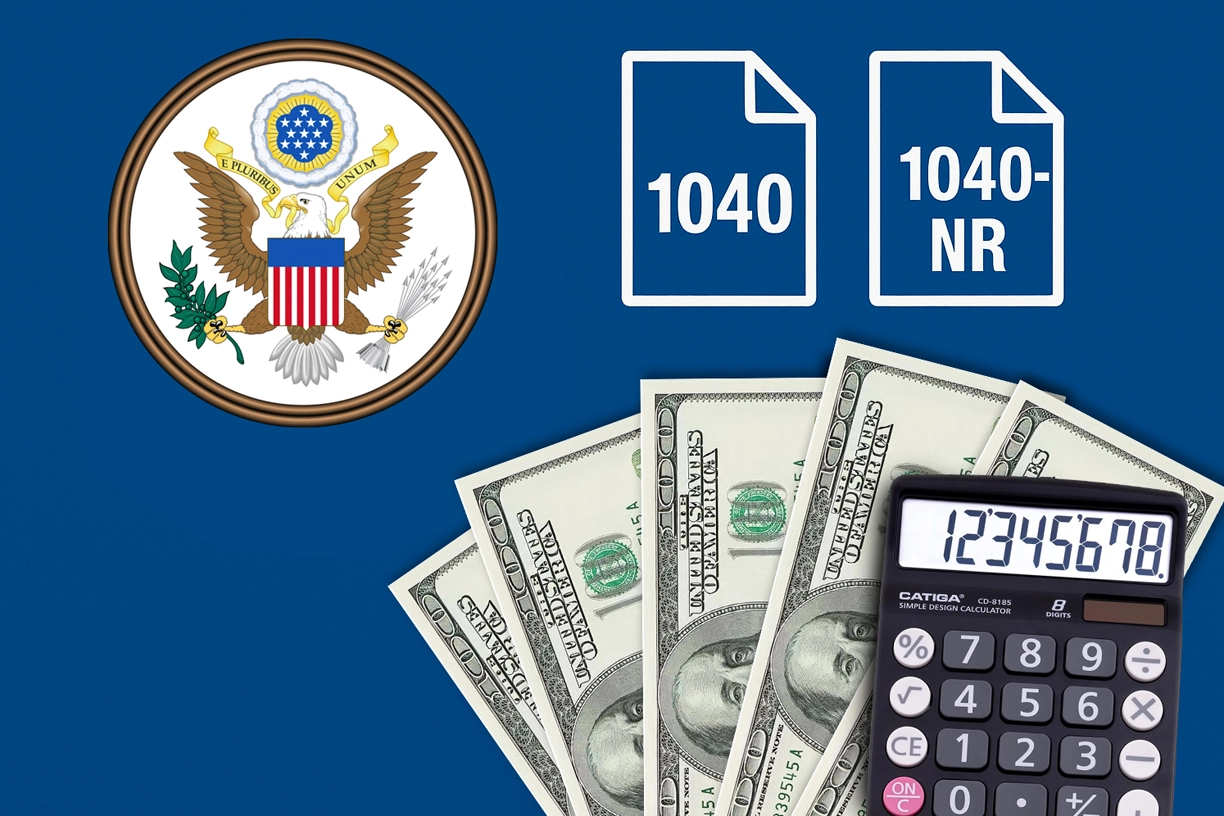US Individual Tax Filing & China US Tax Treaty to Avoid Double Taxation

Many overseas Chinese who live, work, or invest in the United States often face a challenging problem: the same income may be taxed both in China and in the US,a situation known as double taxation. Without understanding the relevant tax policies, individuals may not only face higher financial burdens but also risk IRS penalties due to incorrect tax filings.
This article provides a detailed explanation of the key provisions of the US China Tax Treaty and offers practical advice to help you optimize your tax strategy when filing your US individual tax return. Whether you are a US tax resident or a Chinese tax resident, understanding these rules can help you save significant amounts of money and reduce compliance risks.
What Is Double Taxation?
Double taxation occurs when the same income is taxed by two or more countries due to cross-border circumstances.For overseas Chinese, the most common scenario is as follows:
Income earned in China is subject to Chinese tax;
At the same time, if the individual qualifies as a US tax resident or needs to file Form 1040 NR as a nonresident, that same income must also be reported in the US
As a result, the same income is taxed twice, significantly increasing the total tax burden. To prevent this situation, countries often sign Double Taxation Avoidance Agreements (DTAAs) to provide a legal framework for relief.
Overview of the US China Tax Treaty
In 1984, China and the United States signed the Agreement Between the Government of the People’s Republic of China and the Government of the United States of America for the Avoidance of Double Taxation and the Prevention of Tax Evasion with Respect to Taxes on Income (commonly known as the US China Tax Treaty).
The treaty’s main objective is to ensure that individuals or companies are not subject to double taxation on cross-border income, while also promoting bilateral investment and economic cooperation.
For overseas Chinese, this treaty is particularly significant. Whether you are an international student on an F-1 visa, a nonresident taxpayer filing with an ITIN, or an established US tax resident, you can rely on the treaty’s provisions to reduce or even eliminate part of your tax liability.
For example:
Certain scholarships for students may be exempt from US income tax;
Wage income may be eligible for foreign tax credits to prevent double taxation.
This makes the US China Tax Treaty an essential legal reference for overseas Chinese during US tax filing.
Key Provisions Explained:1. Residency Status Test
The treaty outlines the criteria for determining tax residency. Generally:If you meet the Substantial Presence Test (SPT) in the US, you are considered a US tax resident and must file Form 1040.
If you do not meet the SPT requirements, you are a nonresident and must file Form 1040 NR.
Your residency status directly affects which treaty articles apply and what tax benefits you can claim.
2. Types of Income Covered
The treaty specifies which country has the taxing rights over different types of income:
Wages and Personal Services: Usually taxable in the country where the services are performed.Dividends, Interest, and Royalties: May be taxed in both countries, but the treaty limits the withholding tax rates (e.g., dividends are often capped at 10%).
Scholarships and Grants: Certain education-related income is exempt from US income tax.
3. Foreign Tax Credit (FTC)
To avoid double taxation, the treaty allows individuals to claim a Foreign Tax Credit (FTC).
In practice, this means that if you have already paid taxes in China, you can claim a credit for those taxes when filing your US return (Form 1040 or 1040NR). This reduces the amount you owe in the US
Example:If you paid $1,000 in Chinese income tax and your US tax liability on the same income is $1,200, you would only need to pay $200 to the IRS after applying the FTC.
Be sure to file Form 1116 (Foreign Tax Credit) before the tax deadline to remain compliant.Practical Applications for Specific Income Types
Wage Income:
If you work in China but are a US tax resident, China may have primary taxing rights, while the US allows credits for taxes paid abroad. The reverse applies if you work in the US but remain a Chinese resident.
Investment Income:
Dividends and interest may qualify for reduced rates under the treaty. For example,dividend withholding tax is limited to 10%, which is lower than the standard rate.Accurate reporting of overseas income is essential to avoid IRS audits. Through strategic planning,such as leveraging tax-exempt income provisions or filing extensions,you can effectively lower your total tax liability.
How to Apply the US China Tax Treaty: Practical Steps
Determine Your Tax Residency:Use the residency tests to determine whether you are a US or Chinese tax resident. If you qualify as both, the treaty’s tie-breaker rules will determine which country has primary tax authority.
Keep Income and Tax Records:Maintain documentation of income and taxes paid in both countries to support your Foreign Tax Credit claim.
File on Time:Be aware of the US tax deadline (usually April 15) and consider applying for an extension if needed. Use tax software or consult a professional to ensure accuracy.
Plan Ahead:Review updates to the US China Tax Treaty (e.g., potential revisions discussed in 2023) and optimize your investment structure to minimize taxable income.
Conclusion:By properly applying the US China Tax Treaty, overseas Chinese can legally avoid double taxation and reduce their overall tax burden. Understanding your residency status, using foreign tax credits, and following treaty provisions are the keys to legitimate tax savings.
If you are unsure how to apply the Foreign Tax Credit or determine your eligibility under the treaty, contact us for a free one-on-one consultation with a US licensed CPA.With 15 years of professional experience in US individual and business taxation, we are your trusted partner for accurate, compliant, and optimized tax filing.


+8618038173631


hi@easytaxs.com


StartBizUSA

Please scan WeChat QR code for professional service
STAY IN THE LOOP
Subscribe to our free newsletter.
The annual US individual tax filing season can be a daunting experience for many, whether you are a newcomer to the United States or a long-term resident.Navigating the complex tax regulations, various IRS forms, and understanding how to determine your tax filing status can be confusing. Which incomes need to be reported? What deductions can





